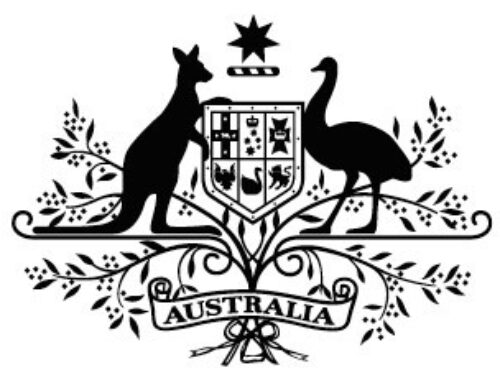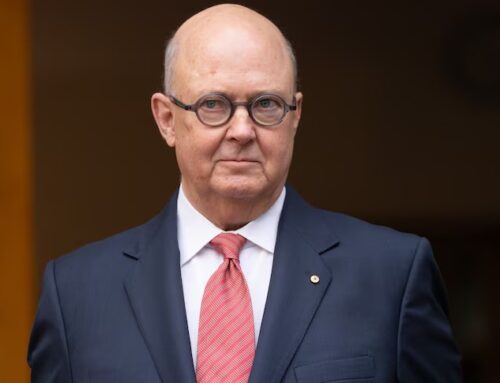The Saturday Paper | December 23, 2023 |Scott Mitchell
Six months into a landmark restructure, with more staff leaving and show cancellations mounting, there are increasing doubts over whether the ABC’s strategy to secure its future with a younger audience can succeed.
The national broadcaster’s internal ructions found strong public resonance this month with the axing of The Drum. For some viewers lamenting the demise of the current affairs panel show, it compounded their concerns about the wisdom of star reporter Andrew Probyn’s ousting months earlier and the high-profile departure of Stan Grant. The ABC’s enormous restructure was beginning to look less like a lifeline and more like a losing battle.
For an exercise that’s purportedly about reaching more Australians online and attracting younger audiences, it has certainly resulted in the loss of senior staff who are known to be enthusiastic proponents of both. Among the recent departures are some of the few younger women to hold significant leadership roles.
The stakes of this restructure are higher than ever. Australian audiences are leaving the ABC year on year, with the public broadcaster reaching fewer people each week than at any time in the past 10 years – even the reach of the ABC News website is down 30 per cent on last year. And this overhaul is unique because it comes after the Labor government “restored” funding to the broadcaster. Rather than being forced into change by budget cuts, the ABC’s executives are wielding this axe of their own volition.
Back in June, when the restructure was first rolled out to staff, head of news Justin Stevens foreshadowed that tough decisions were needed. The ABC was at a “tipping point”, he said in a video call, noting “this year, the ABC’s audience numbers on digital platforms will overtake our scheduled broadcast audience numbers”.
Stevens emphasised this was not a restructure for the future – it was an existential issue for the ABC, right now.
To understand how the restructure is unfolding, The Saturday Paper spoke this month to 14 current or recently departed staff across most of the major departments, all of whom requested anonymity. For some, these first explanations stirred cautious optimism – perhaps a path to digital transition that didn’t simply add more work to everyone’s overflowing plate.
One of many turning points in that mood occurred in mid-December. As The Drum was being eulogised by fans of the show, redundancies and resignations among senior staff were sweeping through the broadcaster. And some of those tasking with driving change were already walking away.
Inside a newly created department at the heart of the ABC’s restructure plans, two significant resignations were the manager of digital content, Laura McAuliffe, and content development lead Anisha Khopkar. Both had joined the digital content and innovation team when it was launched only a few months ago, to lead the transformation of many of the traditional radio networks and TV units at the ABC.
“We just have to make sure that we’re not putting all of our commissioning money into a younger-skewing audience that is not there yet. But conversely, if we’re not putting any of it there, they will never come.”
McAuliffe was also the chair of the ABC’s Next Gen Advisory Panel, which works across the content division, advising on the best ways to attract young audiences. That panel was only assembled in October.
These departures followed immediately after a round of lay-offs flagged on December 11 by Ben Latimer, the newly appointed head of audio, whose role was created as part of the restructure. In the email, Latimer, who joined the ABC from commercial radio network Nova, sketched out the new order for the radio and podcast teams that now sit beneath him.
The proposed organisational chart and responsibilities circulated left many baffled. The triple j digital platform Unearthed, which promotes new Australian music and has helped some Australian musicians to national stardom, was left out, with no senior manager responsible for it.
Music programmer Richard Kingsmill was made redundant from his role overseeing music content across the flagship youth network along with Double J, ABC Country, ABC Local Radio and Unearthed. He departed without saying goodbye on air to the radio station he’s been synonymous with for three decades, triple j.
Meagan Loader, the head of music and creative development and formerly the leader of the ABC’s talent retention initiative, was out. So too was Tia Newling, the content manager at triple j and youngest member of the leadership team at the avowedly youth-focused station.
These departures are all from the newly created content division, as distinct from the news division – these two are the last remaining in a consolidation process from four divisions in 2017. The head of content is Chris Oliver-Taylor, who joined the ABC from Netflix Australia this year – his appointment was significant for the landscape of music, arts, comedy and drama programming in this country. He tells The Saturday Paper his leadership team has a majority of women under 50 and the ABC offered alternative roles for the women who had left, saying, “I wish they were staying. I think they’re great and wonderful.”
Oliver-Taylor also says he believes decisions in the restructure are taking the ABC in the right direction, but concedes that, with limited funds and ability to make drastic changes immediately, change has to be an iterative process.
“We just want to keep evolving and – no revolution – just evolve. I mean, we get it wrong and change it.”
Both audiences and staff have become used to seeing job losses and change at the ABC ever since the Abbott government cut budgets in 2013. One ABC journalist told The Saturday Paper, “I can’t remember a time we weren’t restructuring.”
Despite that cynicism, most agree on the problem. They’ve seen the chilling audience insights slide that has been doing the rounds at the ABC for years. It shows that as people in the 18-24 age bracket leave the family home and consume less ABC content, they’re becoming less likely to return. Simply put, unless the ABC goes online and gets younger, it won’t replenish its ageing audience.
Inside the ABC business model: ‘There has been self-censorship’
A generational pivot away from linear broadcasting costs a lot of money, however, and the budget remains tight. In restoring funding, the Albanese government committed to giving the ABC an additional $22 million a year, for four years – and returned indexation to the overall budget, which was frozen in 2019 by the Coalition government. Many say this still doesn’t return the ABC to the funding levels it would enjoy today if the cuts had never begun back in 2013. One study by a group of former ABC staff claimed $86 million more would be needed every year to do that. Without a bigger injection, the bulk of the spending had to be found within the operating budget, meaning job losses.
But to some insiders, the overall picture of the transformation is a broadcaster still in conflict with its own stated goals.
Oliver-Taylor’s mantra for transformation is “fewer, bigger, better” – a phrase borrowed from the strategy implemented at the BBC more than five years ago. The reasoning is that the ABC simply makes too many shows and it doesn’t have the money to promote them to audiences – a view generally well accepted among staff. The enormous slate of podcasts, more than 200, is just one example.
And sources at the ABC agreed he had been an agitator for change. At a meeting this year, he told staff, while discussing audience declines across the board: “We’re all failing, including me.”
The Saturday Paper can reveal that TV shows axed in Oliver-Taylor’s brief tenure include Aunty Donna’s Coffee Cafe, which aired this year but will not return in 2024. It was the first series commissioned by the ABC from Australian comedy group Aunty Donna, who first found success in the United States with a hit Netflix series. The 2023 ABC annual general report praised the show’s commissioning: “[T]he team had a well-established social media brand, allowing for total socials views to exceed 20 million.”
A series of other projects that were approved or in advanced development for the 2024 TV roster prior to Oliver-Taylor’s arrival were also cut. All of them were designed to attract a younger demographic and get them on to the ABC’s iView platform.
The cancelled projects include a comedy documentary series, Mysterious Mysteries, from comedians Alexei Toliopoulos and Cameron James, and a project from recently departed triple j drive presenters Lewis Hobba and Michael Hing.
Instead, Shaun Micallef, who ended his show Mad as Hell just last year, citing a desire for “someone younger to take advantage of the resources and opportunities on offer”, will return next year with a series that is yet to be titled.
Insiders say it is not uncommon in the television industry for projects to be cancelled because of a leadership change, and it’s understandable any new senior executive would want to ensure a slate of programs aligns with a changing corporate vision. The choices made for next year’s television programming seem disconnected from the goals in the ABC’s five-year plan, however. That document lays out the strategic priority to “ensure we provide relevant content, in engaging formats, for younger audiences, especially those who do not use traditional broadcast services”.
Chris Oliver-Taylor admits that for the time being, the proposed television offerings skew slightly older than younger, in line with its current audience. But he says the ABC is taking a targeted approach.
“We just have to make sure that we’re not putting all of our commissioning money into a younger-skewing audience that is not there yet. But conversely, if we’re not putting any of it there, they will never come,” he says, adding he’s excited for the scripted comedy White Fever, by Korean–Australian writer Ra Chapman.
It’s too early to say whether merging divisions and reordering the ABC can arrest its decline with audiences. Whatever the final outcome, without a Coalition government in power handing down cuts to draw attention, the current leadership group at the ABC will have to own the wins and the losses.
This article was first published in the print edition of The Saturday Paper on December 23, 2023 as “Inside the ABC turmoil”.




